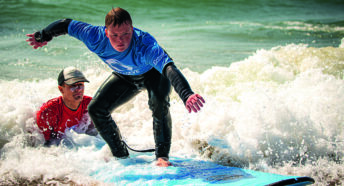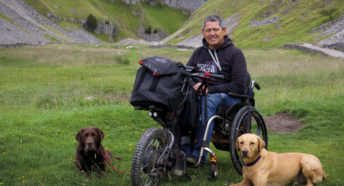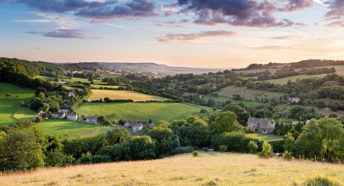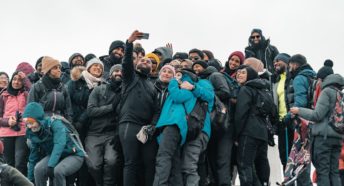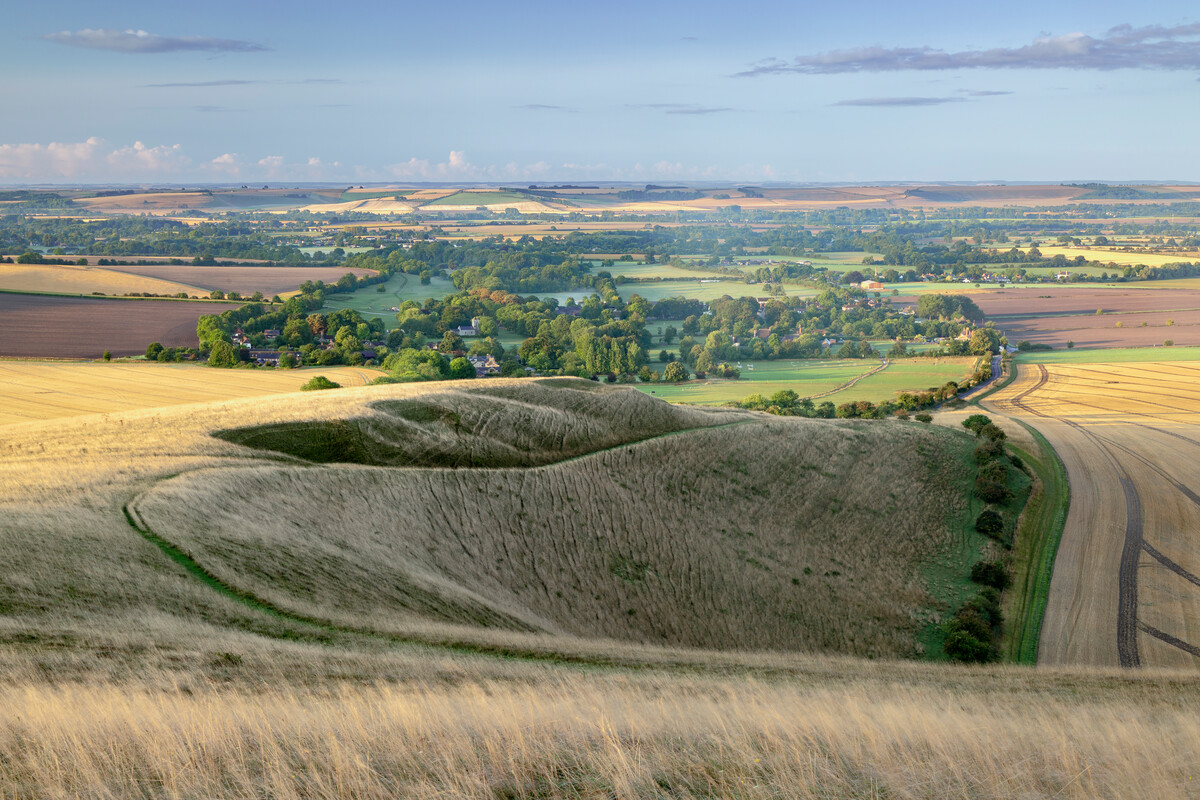Somerset’s smallest Pride: how rural communities are stepping out and moving forward
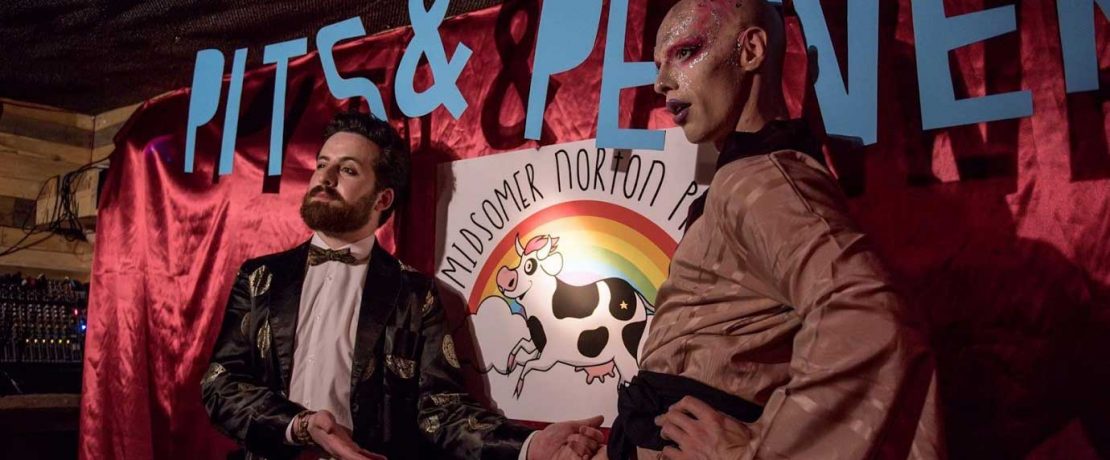
The countryside is best when everyone can take pride in it. Joe Jukes, who researches LGBTQ+ experiences of the countryside, reflects on rural Somerset’s first Pride festival in 2016.
‘I can’t even begin to describe how I feel right now. When I first came out at 15, I could have never imagined a festival like this taking place in Midsomer Norton’.
These are the words of Nik Jovcic-Sas who, in 2016, along with co-organiser Grant Johnson and the local Community Trust, put the little former mining town of Midsomer Norton on the map with the first – and smallest – Pride festival in the region.
Nik’s overwhelming, indescribable feelings the morning after the inaugural ‘Pits and Perverts’ benefit ball, held on a Saturday night in June, are understandable: rural England doesn’t always seem accommodating to queer people. What had happened here was important.
Many rural-dwelling lesbian, gay, bisexual, trans and queer (LGBTQ+) people enjoy few opportunities to be out and proud, finding themselves either without an immediate and visible queer community to engage with, or worse, a hostile, homophobic one at the doorstep.
Despite the reality that many LGBTQ+ people are living happily in the countryside, small-town England has garnered associations of social conservatism, traditionalism and a preference for the past over the present.
Against these narratives, it’s easy to see why a rural pride featuring Paulton’s only queer witch and a naked, rhinestoned drag unicorn has enjoyed such a celebratory and lasting legacy.
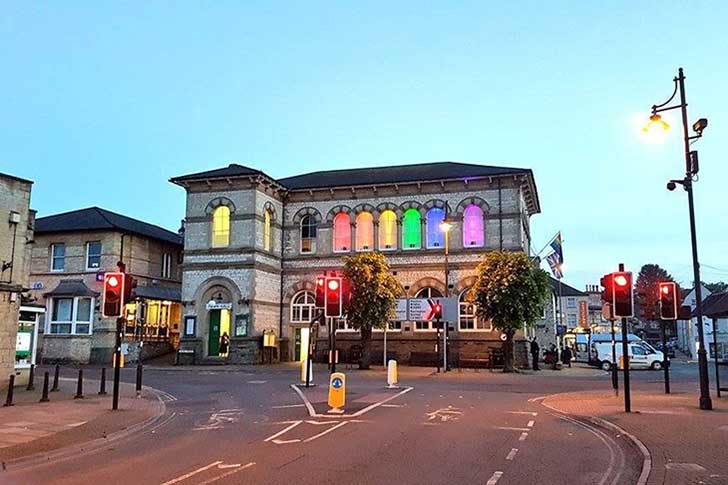
‘One of the greatest honours’
Reflecting on the Midsomer Norton Pride Festival, which featured a bake-off event, a film screening and an underground club night, the drag queen Me, originally from Taunton, said:
‘Before moving to London aged 19, I had very little concept of Pride nor could I envision anywhere in Somerset ever having one. I certainly wouldn’t have put money on the first one being in Midsomer Norton. But to appear at the county’s first-ever Pride was one of the greatest honours of my career.
‘To see local LGBTQ+ people be visible and come together was inspiring. It had all the charm of rural life mixed with the raucous celebration of queer power. Somerset is a greater place for it!’
Making waves – and rainbows
This momentous ‘raucous celebration’ made waves from the Mendip Hills to the Bristol channel. Other small and rural Pride festivals have since popped up all over the county, including in Bath, Weston-Super-Mare, Yeovil, Taunton and even little Watchet, a harbour town of just 4,000 people.
These events are united in their celebration of local communities. These gatherings are places where the countryside becomes truly ‘open to people of all walks of life, all backgrounds, straight, gay, and even people from Coleford’, as Nik and Grant put it.
A ferocious, punky Christopher Street Liberation Day parade it is not, nor the loud parade of commercial floats weaving their rainbow way down London’s Regent Street. But with its own rural radicalism, Midsomer Norton Pride, cow logo and all, helps us find ways to describe Nik’s indescribable queer joy, and envision Me’s impossible countryside queerness.
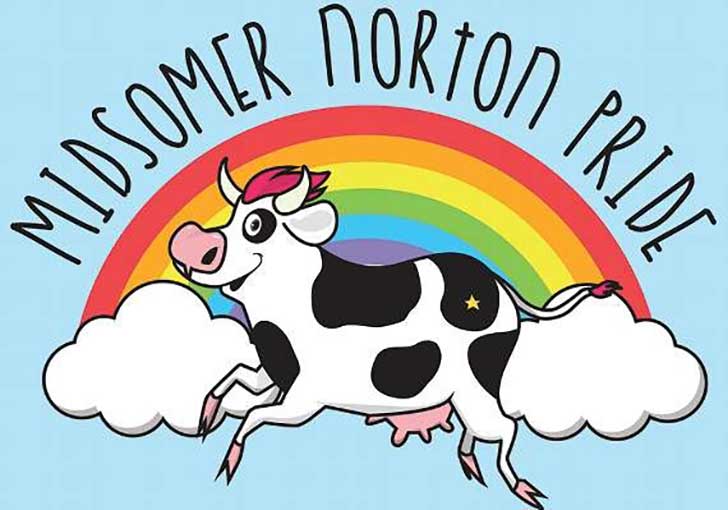
Demystifying queerness
For rural populations, community events serve an important role in bringing people together.
An event like Pride that’s organised around ‘difference’ could in this light be seen as divisive or might be received with pushback. But it’s only by coming together at events like Midsomer Norton Pride’s Pits and Perverts’ ball (named after the iconic fundraisers for miners in the 1980s), when rural queerness gets gathered up all in one place, that one realises there’s (far) more than just one gay in the village.
And once we reckon with the simple fact that rural England is brimming with excellent, vibrant and diverse LGBTQ+ people, we can ensure the countryside becomes comfortable and joyful for queer people all year round.
The common understanding of Pride festivals often conjures up images of an urban or consumerist party. For Midsomer Pride performer and drag artist Cheddar Gorgeous, Pride is about ‘allowing people to affirm their commitment to being allies’ and ‘demystifying queerness, making people a little less scared of people who are different to them’.
We’re here, we’re queer
There’s a powerful assumption that closeted folk in the country move to the city, come out of the closet and never look back. This common narrative makes the idea of rural pride feel somehow ‘unimaginable’.
It’s also a presumption that falls apart the moment that LGBTQ+ people in the countryside find an opportunity to be visible and make demands – to say we’re ‘here’ and we’re ‘queer’. A fledgling Pride in rural communities can act as a huge step forward, a progressive act, which could empower people to step into their sexuality or gender identity or encourage local people to step up as allies to their LGBTQ+ neighbours.
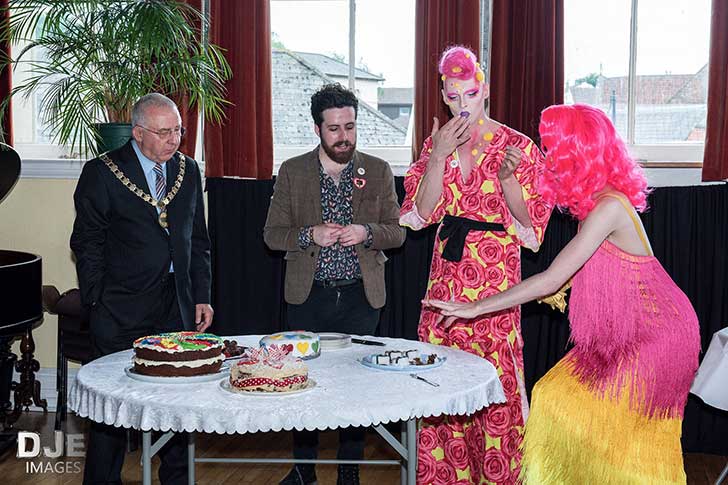
These events don’t happen in isolation. Midsomer Norton Pride’s inaugural weekend fell just weeks after the tragic mass shooting at Pulse nightclub in Orlando, Florida, which left 49 people dead and 53 injured.
The packed bar at Norton’s Pride, Wunderbar, fell silent to remember those fallen – a reminder that this story of hope and happiness in rural Somerset finds itself inextricably linked with one of tragedy and hate elsewhere.
In these moments of powerful reflection and exuberant celebration, the town ‘felt alive’, said Alex Davies, manager of the Midsomer Norton Community Trust. ‘People were excited for something new and progressive, that was forward-looking, for the people’.
More liveable and lovely
I grew up in Midsomer Norton until the age of 18. Only now, after 8 years, have I begun to reassess my relationship with the area. I made the journey back home from university in 2016 to join in the Pride festivities. They felt truly momentous, as if the earth had shifted.
Events like this have the power to change how places feel for LGBTQ+ and straight inhabitants alike, to bring people together and to move communities forward.
For me, though, it’s also helped me go backwards, to step back into the community I once left, and to put roots back into the land that raised me.
Midsomer Norton Pride, and other rural festivals from Newquay to Stornoway, are moments to celebrate the people that choose to live and love in the countryside. This is important. But they’re also moments that make the countryside more liveable and lovely for LGBTQ+ people and their allies.
Joe Jukes is a PhD candidate at the University of Brighton researching rural queer experiences.
A note on language: Joe uses the term ‘queer’ to describe non-normative experiences or identities when it comes to matters of sex, sexuality and gender. Even though queer has been used as a pejorative slur against gay, lesbian, transgender and other communities, it is increasingly being taken up as a way for people to find community outside of ‘heterosexuality’ and its norms. LGBTQ is used to refer to specific communities of ‘queer’ people without assuming which label they might use to describe themselves.
For more information on these terminologies, we recommend this article from Historic England about how they used language in their Pride of Place project.




